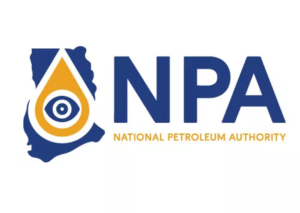
PHOTO: Maxwell Adu Takyi
A senior youth leader within Ghana’s New Patriotic Party (NPP) has submitted an ambitious set of constitutional reform proposals aimed at overhauling the party’s internal structures, improving grassroots participation, and curbing the influence of money in internal elections.
In a memorandum addressed to the NPP’s Constitution Amendment Committee, Maxwell Adu Takyi—a former TESCON president, polling station chairman, and currently serving as Deputy Administrator of the party’s National Youth Wing—outlined comprehensive amendments designed to “enhance internal democracy, inclusivity and effectiveness” within the party’s operations.
Citing his experience from the grassroots to national youth leadership, Mr Takyi is advocating for systemic adjustments to how the party organises, selects, and empowers its local and national officers.
Expansion at the Grassroots
One of the central pillars of the proposal is the expansion of both the Electoral Area and Polling Station executive structures. Mr Takyi suggests replacing the current model of a single Electoral Area Coordinator with a five-member executive team, comprising a Chairman, Secretary, Organiser, Youth Organiser, and Women Organiser.
He argues that this expansion would “reduce the monetisation” of party primaries by diffusing influence across a wider base and creating more structured leadership at the electoral area level.
The Polling Station executive body, under his plan, would also be expanded from its current format to include 15 roles, including new positions such as Deputy Women Organiser, Communications Officer, and Research Officer. The aim, he says, is to bolster grassroots work rate and provide wider opportunities for party members to serve, thereby reducing the high stakes and tensions typically associated with internal elections.
Democratic Elections of Deputies at All Levels
Mr Takyi also proposes a significant break from the party’s current practice of appointing deputy executives at the constituency, regional, and national levels. Instead, he is calling for all deputy positions—whether for Organiser, Women’s Wing, Youth Wing, or Nasara—to be elected rather than appointed.
“Appointed deputies often focus on pleasing their appointors, not the grassroots,” he writes, asserting that direct elections would ensure greater accountability and enhance grassroots connections.
For national deputies, he proposes a regional zoning approach. Three deputy positions would be established for each key national portfolio (e.g., Youth Organiser, Nasara Coordinator), with one each representing the Northern, Middle, and Southern belts of Ghana. Candidates would be restricted to contesting only within their geographical zones, although all delegates voting for national officers would also vote for the zonal deputies.
Election Scheduling and Structural Reforms
Given the proposed increase in elected positions, Mr Takyi recommends a reorganisation of the party’s national executive elections to take place across different days. For example, roles such as National Organiser and Youth Organiser could be voted on separately from Chairmanship or General Secretary roles. This, he notes, would ensure greater participation and better logistical management.
He further advocates for constitutional clarity around disciplinary and reconciliation procedures. One notable proposal includes the introduction of an “automatic amnesty” every two years for members who have been suspended, expelled, or have resigned, provided they demonstrate good conduct and sustained engagement with the party.
A Broader Vision for Reform
Mr Takyi’s proposals come at a time when the NPP, Ghana’s largest centre-right political party, is grappling with internal calls for reform, especially following recent leadership contests and growing dissatisfaction among the party base.
His memorandum reflects broader frustrations within party ranks over centralised decision-making, the perception of cronyism in appointments, and the increasing influence of money in internal processes.
Next Steps
The NPP’s Constitution Amendment Committee is expected to review and consolidate inputs from across the party ahead of its next National Delegates Conference. It remains to be seen how many of Mr Takyi’s proposals will be adopted, but his submission will likely fuel ongoing debate over the future direction and internal health of the party.
In his concluding remarks, Mr Takyi writes: “These proposals aim to strengthen the NPP’s internal democracy, promote inclusivity, and enhance the party’s effectiveness… I humbly submit them for kind review and consideration.”
As the party prepares for its next electoral cycle, the conversation around internal reform is likely to grow louder, and Maxwell Adu Takyi has made a strong, detailed case for why structural change must begin now.






